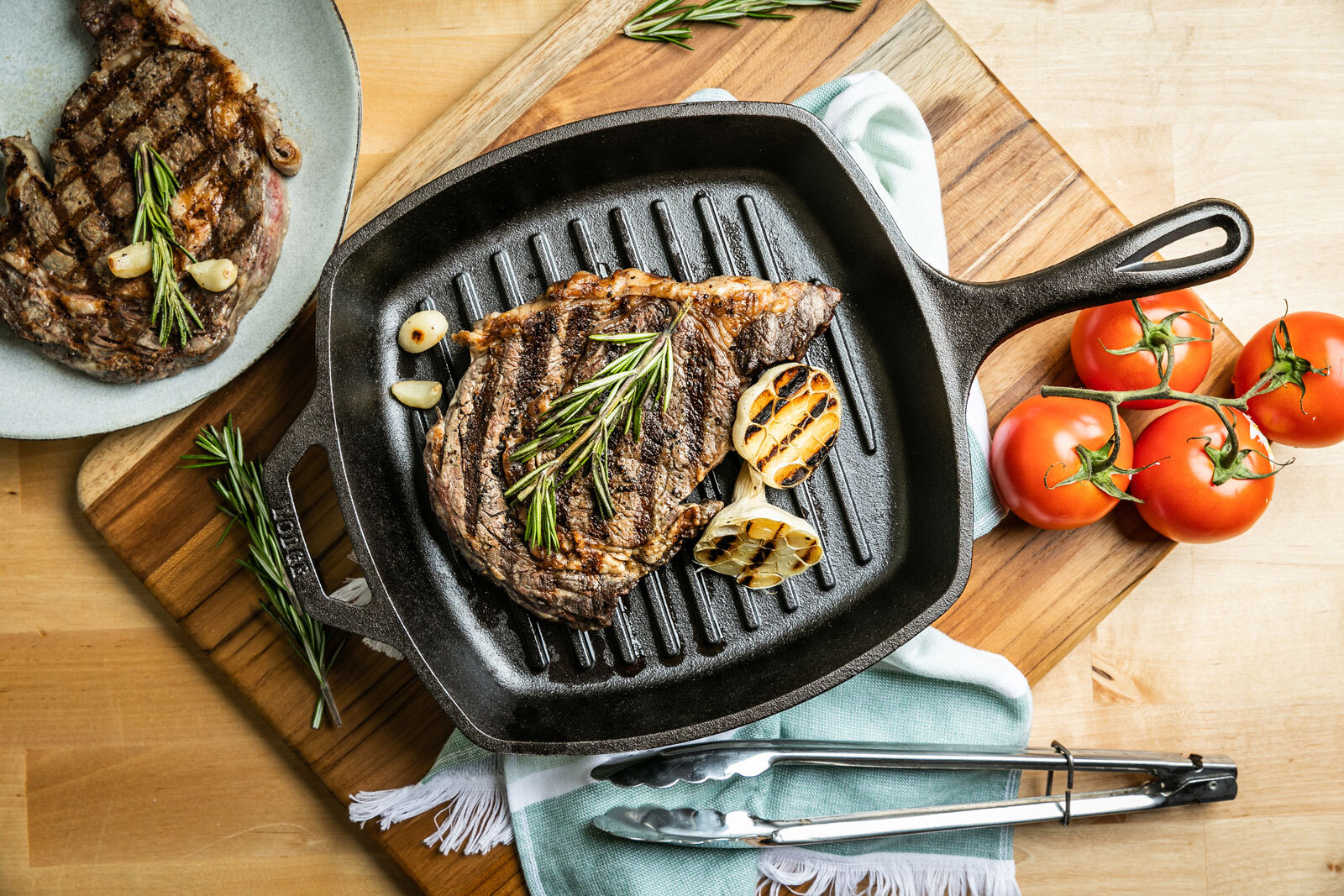In the bustling world of cooking, two types of skillets stand out as popular choices: the cast iron skillet vs non stick. Both offer unique advantages, but which one should you choose? This article will delve into the pros and cons, features, and uses of each to help you make an informed decision.

History and Evolution of Cookware
Origins of Cast Iron Skillets
Cast iron skillets have a rich history dating back centuries. From their early use in ancient China to their adoption in Europe and America, these durable pans have stood the test of time.
The Rise of Non Stick Technology
Non stick cookware emerged in the mid-20th century as a convenient option for home cooks. The invention of Teflon revolutionized the way we cook, offering easy food release and simple cleaning.

Material and Construction
Understanding Cast Iron
Cast iron skillets are made from molten iron poured into molds. Their incredible durability and heat retention are unmatched, making them a favorite for professional chefs.
The Science Behind Non Stick Coating
Non stick skillets feature a coating, such as Teflon, that prevents food from sticking. This makes them ideal for delicate foods like eggs and fish.

Cooking Performance
Heat Retention and Distribution
Cast iron is renowned for its excellent heat retention and even heating. Once heated, it maintains a consistent temperature, ideal for searing and frying.
Ease of Use
Non stick pans are user-friendly, perfect for everyday cooking. They heat up quickly and require less oil, making them a healthier option.
Maintenance and Care
Seasoning a Cast Iron Skillet
Seasoning is essential for a cast iron skillet. It involves coating the pan with oil and heating it, creating a natural non stick surface. Learn more about this process.
Cleaning Non Stick Cookware
Non stick cookware is easy to clean. Simply wipe it with a soft sponge and mild detergent. Avoid abrasive cleaners to preserve the coating.
Durability and Lifespan
Long-Lasting Cast Iron
A well-maintained cast iron skillet can last for generations. Its robust construction makes it a reliable kitchen companion.
Expected Life of Non Stick Pans
Non stick pans typically have a shorter lifespan. With proper care, they can last several years, but the coating will eventually wear out.
Health Considerations
Cooking with Cast Iron
Cooking with cast iron can add a small amount of iron to your diet, beneficial for health. However, be cautious with acidic foods as they can react with the metal.
Health Implications of Non Stick
Non stick coatings are generally safe, but overheated pans can release harmful fumes. Ensure you cook on low to medium heat to avoid this risk.
Versatility in Cooking
What You Can Cook with Cast Iron
Cast iron skillets are incredibly versatile. From frying to baking, they can handle a wide range of cooking techniques.
Best Uses for Non Stick Pans
Non stick pans excel in cooking delicate foods like eggs, pancakes, and fish. They are also great for low-oil and low-fat cooking.
Cost Comparison
The Investment in Cast Iron
Cast iron skillets are an investment. While they may be pricier upfront, their longevity makes them a worthwhile purchase.
Affordability of Non Stick
Non stick pans are generally more affordable. However, you may need to replace them more frequently, adding to the overall cost.
Environmental Impact
Eco-Friendly Cast Iron
Cast iron skillets are eco-friendly. They are made from natural materials and can last a lifetime, reducing waste.
Environmental Concerns with Non Stick
Non stick cookware, particularly those with Teflon, can have environmental concerns. The production and disposal of these pans can contribute to pollution.
Choosing the Right Skillet
Factors to Consider
When choosing between a cast iron skillet and a non stick pan, consider your cooking habits, budget, and maintenance preferences.
Personal Preferences
Your cooking style and preferences will ultimately guide your decision. Both pans have their unique strengths and weaknesses.
Reviews and Recommendations
Top Rated Cast Iron Skillets
Popular brands like Lodge and Le Creuset offer high-quality cast iron skillets recommended by chefs and home cooks alike.
Best Non Stick Brands
Brands like T-fal and Calphalon produce some of the best non stick pans, known for their durability and performance.
Expert Opinions
What Chefs Prefer
Many professional chefs prefer cast iron skillets for their robustness and versatility. However, non stick pans are also favored for specific tasks.
Home Cooks’ Views
Home cooks often appreciate the convenience of non stick pans but recognize the enduring value of cast iron.
Caring for Your Skillet
Cast Iron Maintenance Tips
Regular seasoning, proper cleaning, and drying are crucial for maintaining your cast iron skillet. Explore how to clean cast iron effectively.
Keeping Non Stick Pans Going Strong
Avoiding metal utensils and overheating will prolong the life of your non stick cookware.
Conclusion: Making Your Choice
Choosing between a cast iron skillet and a non stick pan depends on your needs. Both offer tremendous benefits, and understanding their differences will help you make an informed decision.
FAQs
Are cast iron skillets heavy?
Yes, cast iron skillets are quite heavy due to their dense material. However, their weight contributes to their excellent heat retention capabilities.
Do non stick pans require special utensils?
Yes, to preserve the non stick coating, it is best to use wooden, silicone, or plastic utensils instead of metal ones.
Can I put a cast iron skillet in the dishwasher?
No, it is not recommended to put a cast iron skillet in the dishwasher as it can strip away the seasoning and cause rust. Hand washing is advised.
For more information on use of tilt skillet check out this article.
Discover amazing ways to grill chicken with cast iron.
Tips for roasting coffee beans with a cast iron skillet are detailed here.
Learn to season cast iron skillets without an oven from this resource.
As an Amazon Associate, I earn from qualifying purchases.
